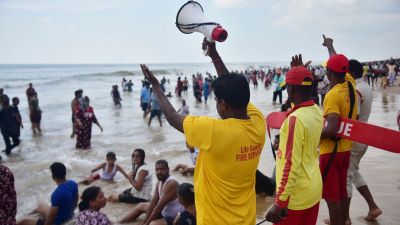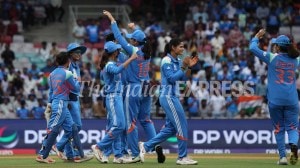Memories of Manto
Ayesha Jalal speaks about the man who left Bombay for Lahore carrying only letters from friends,who boasted that he could write on anything
Ayesha Jalal never met her granduncle Saadat Hasan Manto. But she grew up with his daughters,and knew his stories even before she could read. She rattles out in breathless haste a line from Toba Tek Singh: Upar di gur gur di annexe di be dhyana di moong di dal of the laltain. Fascinated by its gibberish quality,she learnt it by heart before she had learned much else. Like many,Jalal too discovered Manto through his iconic Partition story.
Jalal,Mary Richardson professor of history at Tufts University,Boston,US,published seven history books over two decades,before she set out to write about the person closest home: The Pity of Partition: Mantos Life,Times and Work Across the India Pakistan Divide,to be published by Princeton University Press early next year. It is a microhistory of Mantos life and times connected to the macrocosm of Partition. And the tragedy of it, says Jalal,who is in Delhi for the Distinguished Lecture Series,organised by Nalanda University.
A historian and sociologist,Jalal quickly understood the limitations of family lore and realised that she didnt know 75 per cent of this man till she started to write him. Historic methodology takes you where family narratives dont suffice, she says. Ploughing through letters to Manto,his short stories and archival material,she realised that her famous relative was in so many ways still unknown.
Jalal says that after Partition,when Manto left his beloved Bombay for Lahore,he carried only his letters from friends and family. Sharing just a few secrets,she says that in The Pity of Partition she contradicts family stories,revealing for the first time the significant influence Mantos elder sister Iqbal and mother had on his work. Two years older than Manto,Iqbal played a major role in fashioning his literary interests and talents.
To the chagrin of many in Pakistan,Jalal also exposes Mantos battle with alcohol,one that he lost when he crossed the border. She says,Manto was a heavy drinker,but he was not an alcoholic when he was in India. He became an alcoholic when he went to Pakistan. I didnt know that. I thought he was always one. He drove himself to it. There were outlets for him in the Bombay film industry. In Pakistan,there was no film industry. He was frustrated,poor man.
In Bombay,Manto built deep friendships with actors like Ashok Kumar and Progressive writers like Ismat Chughtai. He enjoyed a prolific career,typing out numerous radio plays and screenplays,hunched over his typewriter with his feet on the chair. At a talk in Delhi,Jalal said that in those days Manto often boasted and even placed (and won) a wager with friends that he could write on any given topic.
While Bombay kept him busy,secure,even content,Partition and the move to Lahore would come to define him. Jalal says,It is true there is much more to Manto than Partition,but without his Partition stories he would not be taught in US or European universities. Anyone writing about Partition from a human point of view cant ignore him. His relevance is extraordinary. Thanda Gosht (Cold Meat),a terrifying tale of madness and memory,was his first story published after Partition in 1948.
He continues to be relevant,says Jalal,because he did not allot blame or take sides,instead he brought the psychological sides of victim and perpetrator,by unveiling the porous borders between the two.
Jalal,who has written extensively on Muslim and South Asian identity,says literature and history share an intrinsic relationship as literature reflects the moment. As a historian,she finds Mantos work particularly useful because he always claimed that he wrote what he saw and heard: He didnt have to fall into the pitfalls of the contending narrations of the two nations. He could rise above that.
In his birth centenary year,Jalal has brought out a bilingual book,in Urdu and English,called Manto Centenary,co-edited by his youngest daughter Nusrat Jalal and published by Lahores Sang-e-Meel. It has his short stories,essays,sketches of actors and is fleshed out with photographs. Released in May in Pakistan,the book,Jalal hopes,will soon arrive in India.
Jalal says that Mantos birth centenary was celebrated enthusiastically in Pakistan,even in the absence of an official celebration. She adds with a warm laugh,Nothing worried us more than the prospect of the government of Pakistan slapping an award on him. There is a quote from Manto where he says that he shudders to think they might put a thamga (a posthumous medal) on his coffin. We are all very relieved they havent given him a national award,posthumously.






- 01
- 02
- 03
- 04
- 05

























